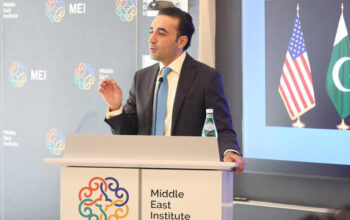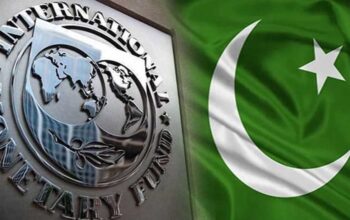By Staff Reporter
ISLAMABAD: Pakistan on Wednesday expressed readiness for dialogue with India but insists it will not be pressured into talks, calling for a comprehensive agenda that includes terrorism, water rights, and Kashmir dispute.
“Whenever they ask for a dialogue, at whatever level, we are ready but we are not desperate,” Deputy Prime Minister and Foreign Minister Ishaq Dar told a news conference.
Dar insisted on a “comprehensive dialogue” that includes not just terrorism but also the Indus Waters Treaty (IWT), a 1960 pact brokered by the World Bank that governs the sharing of the Indus River system’s waters—vital for agriculture in both nations. India suspended the treaty after the April attack, a move Pakistan sees as a threat to the water supply for 80% of its farmland.
India’s Foreign Minister Subrahmanyam Jaishankar, however, has pushed for a terrorism-focused dialogue, an approach Pakistan dismissed. “That’s not on. Nobody else is more serious than us. It takes two to tango,” Dar added.
The statement comes amid a fragile ceasefire following a deadly attack and a brief but intense military clash, with tensions further inflamed by India’s suspension of the critical water-sharing treaty.
The latest rift started on April 22 after an attack in Indian Illegally Occupied Jammu and Kashmir (IIOJK), where 26 people, mostly tourists, lost their lives. India pointed the finger at Pakistan-backed “terrorists,” a charge Islamabad flatly rejected. The accusation ignited a four-day conflict from May 7 to May 10, marked by fighter jets, missiles, drones, and artillery fire. US President Donald Trump stepped in to broker a ceasefire, halting the escalation, for now.
The conflict also sparked a war of narratives. Indian media reported that its air force had shot down a Pakistani F-16 fighter jet, a claim Dar called out as false. “Turned out to be a lie that the F-16 they claimed of shooting down,” he said. “It was proved when we approached relevant authorities in America, they confirmed in 24 hours that no F-16 was flown from Pakistan or went down.”
US imposes strict end-use monitoring on Pakistan’s F-16 fleet, meant for counterterrorism, not cross-border conflicts, especially against India. In February 2025, the US committed $397 million to fund a Technical Security Team in Pakistan to enforce those rules.
Meanwhile, a high-powered delegation, led by former Foreign Minister Bilawal Bhutto-Zardari, wrapped up a two-day visit to the United Nations in New York and arrived in Washington on Wednesday to press its case. The group, featuring heavyweights like Senator Rehman, ex-Foreign Minister Hina Rabbani Khar, and Jalil Abbas Jilani, aims to counter India’s narrative and rally international support.
At the UN, the delegation met with the secretary-general, the presidents of the General Assembly and Security Council, and a slew of diplomats, think tank experts, and media figures.
A Foreign Office statement said they “drew attention to India’s illegal use of force and violations of international law,” including attacks on civilians, and slammed India’s “weaponisation of water” through its hold on the IWT. They dismissed New Delhi’s claims about the April attack as baseless, lacking “a shred of evidence.”
The delegation didn’t shy away from pointing fingers, warning of “Indian-sponsored terrorism in Pakistan” and a “transnational assassination campaign.” They stressed Pakistan’s commitment to fighting terrorism but argued that “cooperation, not politicization,” is the key.
Bhutto-Zardari, speaking to reporters at UN headquarters, said a joint efforts between Pakistan’s Inter-Services Intelligence (ISI) and India’s Research and Analysis Wing (RAW) could minimize cross-border terrorism. “I am completely confident that if ISI and RAW were ready to sit down and work together to fight these forces, we would see a significant decrease in terrorism in both India and Pakistan,” he said.
He credited Trump and Secretary of State Marco Rubio for the ceasefire but warned, “This is a welcome first step, but it’s only a first step.” The risk of renewed conflict, he added, remains high in a region armed with nuclear weapons.
The delegation called on the international community to enforce the water treaty and push for “comprehensive dialogue” on all disputes, including Jammu and Kashmir. They cautioned that India’s “new normal” of unilateral strikes could spiral into disaster in South Asia’s tense, nuclear-charged landscape.
Separately, Special Assistant to the Prime Minister Syed Tariq Fatemi took Pakistan’s message to Moscow. Meeting with Yury Ushakov, a top aide to the Russian president, Fatemi outlined India’s “aggressive actions” and the IWT suspension. He also sat down with Russian media and the Valdai Discussion Club, a prominent think tank, to highlight warming Pakistan-Russia ties in trade, energy, and beyond. The Foreign Office hailed the trip as “highly successful.”
Copyright © 2021 Independent Pakistan | All rights reserved




